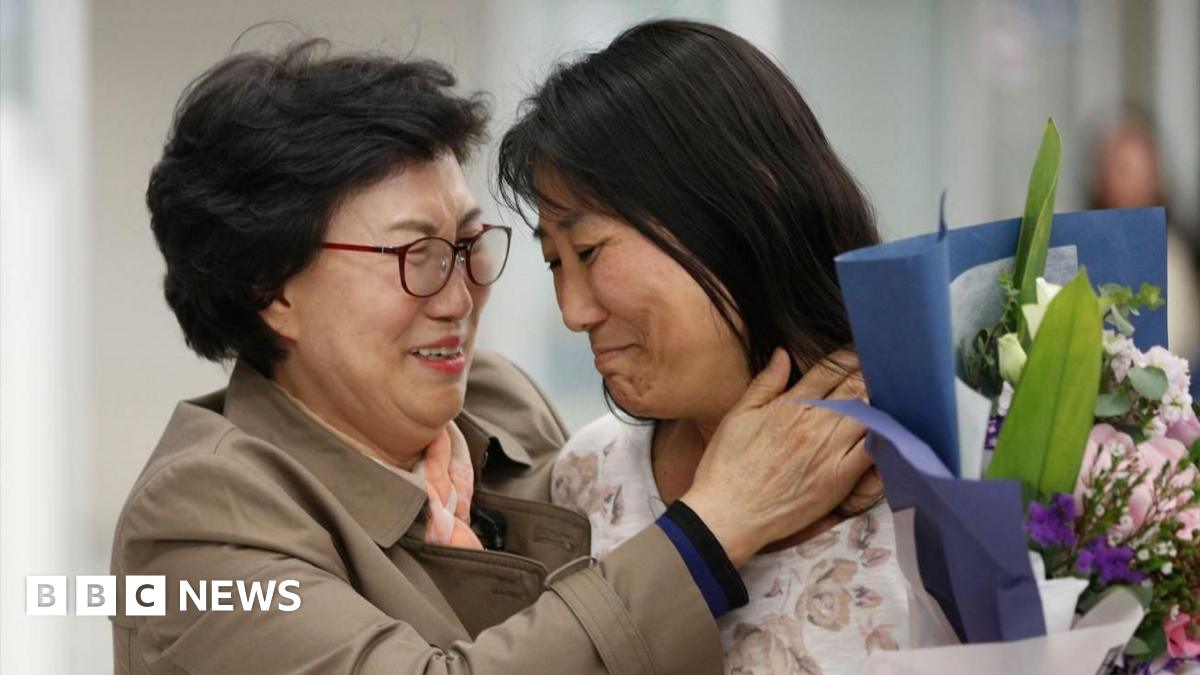Spotlight On South Korea: The Impact Of Overseas Adoptions

Welcome to your ultimate source for breaking news, trending updates, and in-depth stories from around the world. Whether it's politics, technology, entertainment, sports, or lifestyle, we bring you real-time updates that keep you informed and ahead of the curve.
Our team works tirelessly to ensure you never miss a moment. From the latest developments in global events to the most talked-about topics on social media, our news platform is designed to deliver accurate and timely information, all in one place.
Stay in the know and join thousands of readers who trust us for reliable, up-to-date content. Explore our expertly curated articles and dive deeper into the stories that matter to you. Visit Best Website now and be part of the conversation. Don't miss out on the headlines that shape our world!
Table of Contents
Spotlight on South Korea: The Lingering Impact of Overseas Adoptions
South Korea's history is interwoven with a significant, and often overlooked, chapter: the widespread overseas adoption of Korean children. For decades, thousands of children left South Korea, finding new homes in countries across the globe. While offering a lifeline for many children, this practice has left a complex legacy, impacting individuals, families, and the nation's identity. This article explores the multifaceted impact of overseas adoptions from South Korea, examining both the positive and negative consequences.
The Rise and Fall of Overseas Adoption from South Korea
The period following the Korean War (1950-1953) saw a surge in the number of Korean children placed for adoption internationally. Factors contributing to this included poverty, social stigma surrounding unmarried mothers, and a lack of robust domestic adoption systems. Western countries, particularly the United States, Canada, and Europe, became primary destinations for these children. However, the sheer scale of these adoptions raised ethical concerns, including allegations of coercion and a lack of transparency. By the late 1980s and early 1990s, the number of international adoptions from South Korea began to decline significantly, largely due to increased awareness of ethical issues and improvements in South Korea's domestic welfare system.
Long-Term Impacts: A Multifaceted Legacy
The impact of these adoptions continues to resonate today. Many adoptees grapple with identity issues, searching for their biological families and struggling with feelings of loss and displacement. This search, often fraught with challenges, highlights the need for increased openness and transparency in adoption records. Organizations like [link to a relevant organization supporting Korean adoptees], are playing a vital role in providing support and resources to adoptees navigating these complex issues.
Challenges faced by Korean adoptees often include:
- Identity Crisis: Questions about origins, heritage, and belonging.
- Language Barriers: Difficulty connecting with their biological families.
- Cultural Differences: Adjusting to life in a new culture.
- Access to Records: Difficulty obtaining information about their birth parents.
The Perspective of Birth Families
The experience isn't solely confined to adoptees. Birth mothers and families who relinquished children also face lasting emotional consequences. Many harbor feelings of guilt, regret, and a longing for connection. The societal stigma surrounding unmarried motherhood in the past further exacerbated these challenges. Understanding their perspectives is crucial in comprehending the full impact of this historical period.
Moving Forward: Reconciliation and Understanding
Today, South Korea is actively addressing the legacy of overseas adoption. Efforts are underway to improve access to adoption records, promote cultural exchange programs, and provide support services for both adoptees and birth families. This includes increased transparency in adoption processes and a greater emphasis on open adoptions whenever possible. However, significant challenges remain, including the need for improved communication and collaboration between South Korea and adoptive countries.
Conclusion: A Continuing Conversation
The story of overseas adoptions from South Korea is a complex and emotionally charged one. While offering a chance at a better life for many children, it also left behind a legacy of challenges and unanswered questions. Open dialogue, increased transparency, and continued support for all parties involved are crucial steps towards healing and reconciliation. Further research and understanding of the experiences of both adoptees and birth families are essential for a more complete and compassionate understanding of this significant part of South Korean history. By acknowledging the past and actively addressing its consequences, South Korea can move towards a future where the legacy of overseas adoption is one of healing and understanding, rather than unresolved pain.

Thank you for visiting our website, your trusted source for the latest updates and in-depth coverage on Spotlight On South Korea: The Impact Of Overseas Adoptions. We're committed to keeping you informed with timely and accurate information to meet your curiosity and needs.
If you have any questions, suggestions, or feedback, we'd love to hear from you. Your insights are valuable to us and help us improve to serve you better. Feel free to reach out through our contact page.
Don't forget to bookmark our website and check back regularly for the latest headlines and trending topics. See you next time, and thank you for being part of our growing community!
Featured Posts
-
 Travel Expert Advice Use Loyalty Points Amidst Travel Slowdown
May 26, 2025
Travel Expert Advice Use Loyalty Points Amidst Travel Slowdown
May 26, 2025 -
 From Alcaraz To Gauff Assessing The Leading Seeds For The 2025 French Open
May 26, 2025
From Alcaraz To Gauff Assessing The Leading Seeds For The 2025 French Open
May 26, 2025 -
 Phillies Aaron Nola Remains Sore Impact On Next Start Unknown
May 26, 2025
Phillies Aaron Nola Remains Sore Impact On Next Start Unknown
May 26, 2025 -
 Harmonogram Roland Garros Znamy Juz Godzine Debiutu Igi Swiatek
May 26, 2025
Harmonogram Roland Garros Znamy Juz Godzine Debiutu Igi Swiatek
May 26, 2025 -
 Canadian Trip King Charles Faces The Aftermath Of Trumps Criticism
May 26, 2025
Canadian Trip King Charles Faces The Aftermath Of Trumps Criticism
May 26, 2025
Latest Posts
-
 Closure After 79 Years Wwii Bomber Crash Victims Identified Four Coming Home
May 27, 2025
Closure After 79 Years Wwii Bomber Crash Victims Identified Four Coming Home
May 27, 2025 -
 Breaking News Identification Of Human Remains As Missing County Kerry Farmer Michael Gaine
May 27, 2025
Breaking News Identification Of Human Remains As Missing County Kerry Farmer Michael Gaine
May 27, 2025 -
 Coastal Town Rocked By Violence 73 Arrests Over Memorial Day Weekend
May 27, 2025
Coastal Town Rocked By Violence 73 Arrests Over Memorial Day Weekend
May 27, 2025 -
 June 2025 Social Security Payment Dates Complete Schedule For Us Beneficiaries
May 27, 2025
June 2025 Social Security Payment Dates Complete Schedule For Us Beneficiaries
May 27, 2025 -
 Facing The Possibility Ai Consciousness And The Future Of Humanity
May 27, 2025
Facing The Possibility Ai Consciousness And The Future Of Humanity
May 27, 2025
